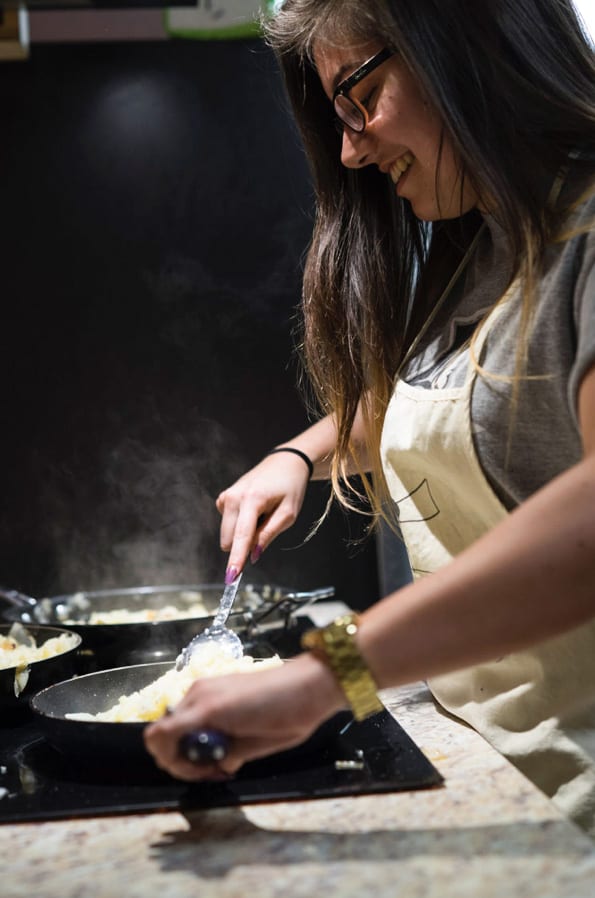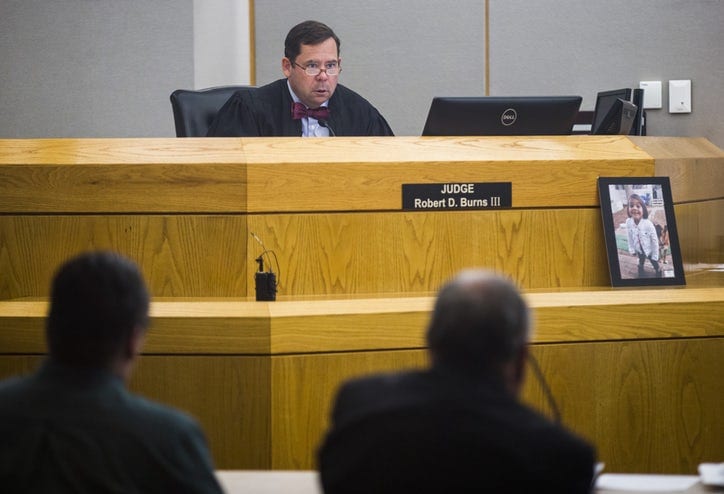Tag: Joshua Chlebowski ’21
Commence On-Campus Composting
by The Cowl Editor on February 14, 2019
Campus

Composting is a wonderful way for unwanted food scraps to transform plant life, a juxtaposition between the unattractive remains of food and the beauty that comes from flowers and other vegetation.
Here at Providence College, there are currently no on-campus options for students interested in composting their leftover scraps. While off-campus options, such as the “Compost Depot” at Frey Florist, are touted as close-range choices available for students, they are not frequently utilized by students due to the fact they are out of students’ ways.
Frey Florist’s Compost Depot, for instance, is only a five-minute drive from the PC campus. However, many students who live on campus do not have access to their own cars and are almost certainly not going to take an Uber with their compostables in hand.
This resigns them to an approximately 15-minute walk through the streets of Elmhurst with compostables in tow. Needless to say, this is not attractive to many students at the College.
Rallying students behind environmental causes is usually difficult, with many wondering how issues like disposing of recyclable items and trash in the correct bins will have an effect on their lives later on.
The issue with off-campus composting locations is that they discourage students who would normally support environmentalism. The idea of first having to collect their compostables, then bring them on a stroll through the city in order to dispose of them turns even the most devoted, environmentally-friendly students away.
Additionlly, with the large number of products that can be composted (fruit peels, certain napkins, and types of tea bags) and are consumed and used by students, multiple trips to the Compost Depot would seem necessary.
Without a car, though, students are not likely to make the trek every few days to dispose of these items in an environmentally-friendly manner.
This does not mean that students should stop composting, or that composting is a waste of time. Rather, there are steps that the College can take in order to promote this behavior amongst its student body.
One option would be to install sites on campus for collection of compostable items, and eco-oriented groups could arrange for the transportation of these items to sites such as Frey Florist’s Compost Depot at regular intervals.
During the academic year, students are shown just how much food is wasted in the dining halls on campus. Providing a composting collection receptacle within these locations could assist in minimizing the amount of food which is thrown out at meals.
Perhaps, a more ambitious plan would be to create composting locations here on campus. This would allow students to both contribute to the creation of compost, as well as to see the benefits of composting during the warmer months when the flowers and foliage of PC are in full bloom.
Though often overlooked, composting offers a way to recycle food and other disposable items, returning them to the soil in a way that benefits future plant life. Finding ways to make this eco-friendly option accessible to students here at PC will go a long way in creating environmentally conscious individuals, as well as contributing to campus beautification efforts.
Food for Thought: Students Need a Culinary Arts Requirement
by The Cowl Editor on February 7, 2019
Campus

Food: the universal energy source. Eating it is something many people have mastered. Preparing it, though, is a far less common skill to come by, especially among college students.
Sure, there may be the occasional student who is passionate about cooking, but it is far from the norm.
On a campus where a year does not go by without a freshman burning macaroni and cheese in a microwave, teaching students the basic skills of the kitchen, or at least some sort of appreciation for the process of cooking, is of particular importance.
Here at Providence College, there are many course requirements, ranging from philosophy to theology, quantitative reasoning to science. With the material covered through the Development of Western Civilization program here on campus, these additional courses in philosophy and theology can be difficult for students to swallow.
The real world application of these courses is debatable, and while it may enrich the mind to know the implications of Aristotle’s Nicomachean Ethics, this pales in comparison to the importance of knowing the skill of cooking.
While in college, many students opt to order food through Uber Eats or other forms of delivery instead of preparing their own meals. Certainly, there are fewer opportunities for underclassmen to make their own meals, seeing as their living spaces rarely have a communal kitchen. However, implementing a culinary course requirement would help these underclassmen, as well as upperclassmen, learn how to cook before they enter an apartment or off-campus living space.
In addition, it has become a part of PC’s culture to complain about the options at Raymond Dining Hall or Alumni Hall Food Court. More often than not, though, these students have not taken the time to get creative with the foods offered to create an option they find more appetizing.
Having students take a class in food preparation or some other academic study of the culinary arts would allow them to study flavors, assisting them in making their own meals from the options provided.
One could argue that we have a cooking club, and this is certainly a fantastic organization which provides an opportunity for students to learn how to prepare certain favorite foods. However, at the end of the day, it is a club, and by its very nature cannot address the issue of students who have no interest in acquiring these skills.
There are several courses offered in the history, biology, and chemistry departments which offer the opportunity to study the culinary world through a certain lens; including, You Are What You Eat or The Scientific Chef. Once again, though, these courses are optional and not required for students to take.
The College administration should consider adding some form of a culinary art course requirement for students on campus. Perhaps a broad requirement that can be fulfilled through participation in some of the above science classes, or maybe a newly developed course where students actively prepare dishes, learning food safety in the process.
Preparing students for life after college is, or should be, of the utmost importance to every university. Philosophy and theology can assist in developing mental processes, but basic skills such as cooking are equally important, as it is rarely more financially feasible to order out every night than to prepare meals at home.
At a school where requirements are in no short supply, adding a course requirement that would appeal to a wider range of students and also help them acquire real world skills would be a wise decision.
While it is important to teach students how to find food for thought here at PC, it is equally important to teach students how to provide food for their stomachs.
Tangents and Tirades
by The Cowl Editor on January 24, 2019
Opinion

VenNO: Why I Prefer Paper Money
In the last few years, Venmo, a money transferring app, has become increasingly popular. But the rise in the popularity of Venmo has had a tragic consequence: the phasing out of paper money.
Admittedly, I have a Venmo account. I find it necessary to have one as a college student, as no one seems to carry cash around in their wallets anymore. Most people even prefer to be paid via Venmo instead of being handed cash.
However, Venmo falls short of paper money in many ways.
In order to access the money in your Venmo account, you need to transfer it to your bank account, which takes from one to three business days. Therefore, if you opt to do an instant transfer Venmo to your bank account, Venmo charges a fee.
Moreover, Venmo has become another form of social media. Although there are settings that allow your transactions to be hidden from the public, the default setting allows the entire world to view who you are sending money to and what you are sending it for. In an age where Instagram, Facebook, and many other social media sites consume so much time and energy from people’s lives, Venmo does not need to be added to the list.
Lastly, there is a certain satisfaction that comes along with physical money. Your Venmo balance may be $500, but you can’t hold that form of money in your hands or roll around in it on the ground. Paper money may be old-fashioned, but it still has a leg up on Venmo.
—Kelly Wheeler ’21
Friar Friendliness: AirPodsí Next Victim
In this era of AirPods, Beats headphones, and easy access to music streaming services, more and more people are plugging in and individually listening to music on their phones.
While it is great and convenient that people can effortlessly listen to and enjoy their favorite songs on the go, this habit of constantly wearing headphones in public places hinders people from properly interacting with others.
This is an issue on our own campus, where a multitude of students walk to class or to other areas of Providence College completely plugged in with their heads down.
This may not seem like an issue to some, however looking up and saying hello to someone can really make someone’s day, as well as improve your own social skills and awareness.
Along with that, some people may view those with their headphones in as people who have no desire to interact with others at that moment, which may not be the case.
Being a smaller school, the likelihood of running into someone you know during your walk across campus is high, and people need to be more open to saying hello even if you are not the best of friends.
As a Friar Family, we should be more open to being friendly around campus and one of the best ways we can achieve this is by unplugging and embracing our Friar friendliness.
—Marie Sweeney ’20
Lighting the Way Through Winter
The winter months are some of the darkest times of the year. Daylight hours come and go with lightning speed, leaving gray skies above our day-to-day activities.
December offers a brief respite from all the darkness, with many homes lit up in holiday decorations, candles in windows, and beautiful multicolor lights. For one month, we can forget the literal and figurative darknesses of the winter season.
Almost as fast as they go up, though, these decorations return to their respective attics within days of Dec. 25 or even Jan. 1, leaving us to once again carry on our daily lives in the lack of sunlight and warmth.
Even here on campus, the rapid disappearance of boughs and garland by the start of the second semester starkly contrasts to the lights and projected warmth that was found across campus in the first semester.
Although it can be expensive to use electricity for all the holiday lights, one does not need to leave the elaborate displays up through the new year. By just keeping a few candles in the window or some colored light strands, the goodwill of the holiday season would continue and make the transition to the new year smoother.
In a season defined by its lack of daylight and extremely cold temperatures, passing houses and buildings with lights in the windows on our everyday travels offers welcome moments of warmth and distraction, making these harsh winter months all the more bearable.
—Joshua Chlebowski ’21
New Year, Same Story: Why Body-Related Resolutions are Detrimental
by The Cowl Editor on January 17, 2019
Opinion

As a society, we love the idea of a do-over, a second chance to become the people we wish to be. The notion of “new year, new me” provides the opportunity to follow through, even if only temporarily, on goals we have for ourselves.
Every Jan. 1, the inevitable tide of new year’s resolutions comes rushing forth, inspiring conversations about growth and how one can maximize their potential in the coming year. Prime among these are the resolutions to visit the gym more, eat more salads, start a new diet, and lose those “unsightly” extra pounds.
Businesses, particularly those in the health and fitness industry, capitalize on the resolution obsession by offering reduced membership costs and bombarding the television screen with advertisements on how their gym is “judgment-free.”
Although there might not be any issue surrounding the numerous resolutions pertaining to health and fitness, the reality is that these very promises we make perpetuate the problematic idea that there is a socially acceptable body that must be achieved.
Too often individuals link their self-confidence to their body shape, believing that if they can lose those few pounds or gain some more muscle mass they will finally be happier and more confident with themselves.
Individuals seek to attain this perfect body in an effort to appeal to the beauty standards of society, though in reality, the process can be draining and often disheartening, particularly when there are no instant results.
The cycle, which begins again without fail with each new year, is marked by an incredible desire to take advantage of these remarkable fitness deals, followed by the gradual descent into resignation.
It is a destructive cycle, fueled by socially lauded body types and the disastrous belief that achieving them will yield confidence and happiness.
This is not to say that people who make resolutions to eat better or incorporate more exercise into their lives as a result of valid health concerns or weight issues should drop these pursuits. In fact, one might say that these situations are the only ones that should warrant the sorts of resolutions that constitute the bulk of new year’s promises made.
These resolutions can be effective for those who are out of shape or leading unhealthy lifestyles, as they offer an excellent opportunity to turn their lives around if they so choose. However, those who simply seek to look stronger or are trying to build their confidence by changing their appearance undermine these efforts.
Confidence is not something that is developed overnight, and while there may be a certain sense of achievement as one achieves or develops the socially accepted body type, this is a fleeting feeling which does not address the underlying confidence deficiency.
If one seeks the benefits which come from a confident lifestyle, having conversations with trusted peers, focusing on positive affirmations of skills and talents in addition to pushing ones previously accepted limits are more healthy ways to approach such a transition.
These methods do not undermine the efforts of individuals who pursue healthier lifestyles for medical reasons. There is a difference between the resolution to lead a healthier lifestyle and the resolution to attain unrealistic body standards.
Resolutions provide us with the opportunity to evaluate our lives, deciding which aspects are bringing stress and which make us truly happy in order to continue to develop into well-rounded and content individuals. While resolutions often center on body type and fitness, these do not address the underlying issues that make us envious of people with certain muscles or builds.
If we are to truly take advantage of the concept of new year’s resolutions, we must be willing to ask the hard questions and evaluate why we seek certain things in the new year. Will these pursuits make us happy and better individuals, or are they simply moving us to conform to detrimental societal expectations?
Tangents and Tirades
by The Cowl Editor on December 6, 2018
Opinion

Hot Take: Ice Cream Sundays over Nugget Thursdays
All Providence College students look forward to lunch at Ray on Thursdays, when heaps of chicken nuggets paired with delectable curly fries grace the main station. Although chicken nugget Thursday is the highlight of the week for many, there is another strong contender: hard ice cream Sundays.
Every Sunday night at Ray, a selection of hard ice cream is available for dessert. On all other days of the week, ice cream is limited to soft serve, with the only options being vanilla, chocolate, or swirl.
On hard ice cream night, however, multiple varieties ensure that all students get a taste of their favorites, or maybe try a new flavor. Typical flavors include mint chocolate chip, birthday cake, cookie dough, and similar staples. To be festive, holiday flavors are offered at corresponding points of the year, such as pumpkin in the fall or peppermint at Christmas.
The joy of hard ice cream night is never knowing exactly which flavors are offered; every week features a different variety of delicious ice cream. Chicken nugget Thursday, on the other hand, is the same every single week. Nuggets, curly fries, eat, repeat.
The same meal for lunch every week starts to become old at a certain point. The novelty wears off, and cravings for a sandwich or frustration because of the long lines overcomes the desire for nuggets. The unpredictability of hard ice cream Sunday guarantees enthusiasm every week.
Be sure to remember this underrated tradition and grab a scoop next Sunday.
—Elizabeth McGinn ’21
People often roll their eyes when the topic of astrology is brought up in discussion. Critics of astrology ridicule the idea that earthly events and affairs can be influenced by the way celestial bodies in the universe align.
Although there is little scientific evidence that supports the validity of astrology, horoscopes still have a lot to offer.
Horoscopes are a quick source of entertainment that can easily add a little more fun to your day. Even if you do not follow the advice given in your horoscope, it is still amusing to see what it predicts will happen in your future.
The same logic applies to the topic of fortune cookies. After ordering Chinese take-out, people look forward to opening the fortune cookies that typically come along with their meals. Even if they do not believe their fortune is accurate or take any action after reading it to make it come true, people are nonetheless eager to find out what the little piece of paper has to say.
Though it is ill-advised to make any major life decisions solely based on what your horoscopes say, this does not mean that people should be so quick to dismiss them. Horoscopes can help boost your self-confidence and optimism and, in a world where things can often feel out of control, they can offer some sense of order and guidance. As long as they are taken with a grain of salt, horoscopes are relatively harmless and enthusiasts of astrology should not be mocked for joining in on the fun.
—Kelly Wheeler ’21
Share Study Space This Finals Season
Finals season is here, which means the stress to find that perfect place to study is more intense than ever. With classrooms occupied for exams and the influx of students in the library, locating the space one needs for reviewing material is often more stressful than the exams themselves.
This competition leads to all sorts of desperate measures. From attempts to reserve rooms to marking them as their own, students at Providence College have thought of it all, except for the impact their actions are having on their fellow students.
For students who are studying in large lecture halls, it is especially frustrating when others come in, claiming they have a study group there and kick others out. These lecture halls are not owned by the students, and commandeering rooms through these methods is extremely disrespectful.
Similarly, attempts to mark a room as one’s own, by leaving their things there, shows a distressing disinterest in recognizing that exams are stressful for all students. This behavior is increasingly concerning when students vacate the room for hours at a time.
Sure, there is a fear that the room will be snatched from their hands, but that does not give them the liberty to prevent others from using the space in the meantime.
While there is no easy way to eliminate the stress induced by final examinations, we can all do ourselves a favor by sharing the spaces on campus with other students, reducing these worries and helping finals week go much smoother.
—Joshua Chlebowski ’21
Should Black Friday Start on Thanksgiving Thursday?: Early Holiday Sales Cheapen the Meaning of the Season
by The Cowl Editor on November 29, 2018
Opinion

by: Joshua Chlebowski ’21
Opinion Staff
Everyone would love to extend the holiday season—imagine having lights up and seeing acts of generosity every day of the year. However, the unfortunate fact of the matter is that this is exactly what retailers have done in recent years, and it has come with a cost.
Commercial businesses love the idea of extending the holiday season because they believe it will also lead to an increase in revenue and sales. However, their attempts to do so detract from the enjoyment one feels while engaging in holiday activities.
When Christmas decorations go on sale Columbus Day weekend, people feel joyful knowing the holidays are approaching; holiday music soon begins to infiltrate advertisements, directing one’s thoughts towards preparations for the season of giving and buying presents.
The issue with this is that the joy one feels when experiencing these holiday novelties for the first time of the season is short-lived. Soon after feeling that rush of joy, a little voice reminds us that we actually have another month or two before the season really takes off.
As a result, we accept the holiday music, sales, and décor and move on with our lives.
By the time Thanksgiving ends, and people start expressing holiday cheer in all types of settings, we are already tired of the season. The novelty and initial joy have worn off, and participation in holiday activities lacks a sense of complete joy.
Extending the holiday season may benefit some retailers, but it fails to acknowledge that the success of the holiday season is because of the attitudes that go with it. The holiday season is more than just giving gifts, seeing decorations, and hearing festive songs. There is a mentality which cannot be replaced, despite the best attempts of commercialism.
The holiday spirit should reside in spending time with loved ones, reminiscing and creating new memories, the intangible experiences, and the laughter that occurs so frequently during the holiday season.
While retailers try to extend the season, they actually wind up diluting everything that makes the holidays enjoyable. By jumpstarting the excitement for the holidays, these businesses prey on the holiday memories we have in an attempt to make us invest in the material.
Sure, everyone loves a good sale, and it is always nice to be prepared before the season hits, but these discounts speed our minds to December, creating a false pressure to start buying gifts right away instead of waiting.
This pressure leads to a loss of focus in the present moment. Thanksgiving passes by in a whirl, cast aside in the pursuit of those holiday gifts and the commercial holiday experience.
There is nothing wrong with enjoying a good Black Friday deal or spending money on friends and family.
It is when the pursuit of these gifts and sales overtakes the thought behind the gifts, and when the commercial comes before the quality time, and when the holiday season becomes one long rush from October to December as opposed to the short period between Thanksgiving and New Year’ that issues arise.
By trying to extend the season by jumping at every holiday sale, convinced the latest decoration or sale item will replicate the joys of the season, we do exactly what commercial businesses want us to—spend money when it is not needed.
If we are going to try and extend the holiday season, we have to extend the intangible aspects: the kindness we show strangers, the optimism we display during everyday interactions, and the uninhibited expressions of love and appreciation for friends and family.
Tangents and Tirades
by The Cowl Editor on November 8, 2018
Opinion

Sharing is Caring: Sidewalk Etiquette
Sidewalks on campus are the highways of Providence College. Every day, students use them to get to and from their classes and appointments. And like any off-campus highway, the PC sidewalks are frequently congested with easily-avoidable traffic.
While sidewalks on campus can certainly function as social spaces, their prime purpose is to allow for swift travel between various places. When individuals walk two or even three across, it blocks traffic, and in some cases, prevents a student from making it to their class on time.
Inadvertent swerving is another prevalent walking behavior on sidewalks and in the dining halls, which inhibits others from getting to their destination. Taking the time to focus on one’s surroundings is the simplest fix for this.
Sure, it can be easy to get distracted and caught up in the humorous anecdote your friend just shared, but in the few seconds that were spent slowing down and stopping from intense laughter, several people had to walk around you. You became an obstacle in another person’s travel path.
It is important to remember that we are each one of 4,874 students sharing the Providence College campus. Each of those students occupies space and needs to be taken into account when traveling around the grounds of PC.
“Share the road” has become a popular slogan for driving safely across the nation. Adopting this policy when walking around campus will create a more considerate, traffic-free community at PC.
—Joshua Chlebowski ’21
Sports Culture at PC
The words of “Sweet Caroline” are much more bittersweet on this campus than they have been my entire life.
Growing up in Massachusetts, sports-loving culture is something you are born with; it comes naturally. The amount of pride we have for our sports teams is absolutely unreal.
Coming to Providence College and realizing that not everyone worships Tom Brady or loves the Red Sox was an adjustment I’m still getting used to.
Although PC is in New England, it’s quite obvious that not everyone comes from the area and therefore not everyone has the same interests, especially when it comes to sports.
To people from New England, it may seem that Brady can do no wrong. Unfortunately, the rest of the country does not feel the same.
This becomes a problem especially around playoff seasons, when New England fans are known to get even more obsessive than they are during the regular season.
What makes these rivalries and opinions even better is when a Boston team wins, which is often.
Boston takes pride in our teams and makes sure everyone knows how happy we are.
The air around campus was certainly split after the Boston Red Sox won the World Series this year; many students were ecstatic while others were rolling their eyes at the cheers of Boston fans.
Although it was a culture shock, the air of competition around PC regarding professional sports affiliations adds to the fun and the constantly changing atmosphere of the campus.
—Julia McCoy ’22
Don’t Let Fear Hold You Back
Growing up in a small, safe, suburban town, I was accustomed to going where I wanted, when I wanted without being concerned about any potentially dangerous situations.
At home, I often ran through the neighborhoods near my house, around local farms, or down the various hiking trails nearby. Other than the occasional unfriendly dog, I never felt unsafe.
But coming to Providence College, I realized that I couldn’t take the same liberties I did while at home. Running off campus seemed to be a daunting endeavor, especially considering PC’s location in general and with stories like Mollie Tibbetts’ in the back of my mind.
I suddenly realized that simply by being a woman, normal, everyday activities could potentially turn dangerous—walking through a parking lot at night, taking an Uber alone, or going for a run.
It’s not fair that this is the reality women contend with daily or that we have to cope with constant underlying anxiety and fear.
When I run off campus, I often feel a certain level of fear—fear that someone could yell something at me, fear that a car may stop and someone could get out and approach me, fear that if I run the same route too many times, someone could notice my pattern.
But what I have realized is that this fear can’t hold me back, and it shouldn’t hold any woman back. This fear drives me to take extra precautions when I run, but it also motivates me to live how I want to, and to not let circumstances beyond my control dictate my life, even when they are scary.
I’ve learned that this fear, while unfair, doesn’t need to be a roadblock. As women, we must acknowledge this fear, accept it, and choose to go on anyway. Because when we persist, we begin to dismantle fear itself.
—Andrea Traietti ’21
It’s Not You, It’s Me: Breaking Up With the Fascination Over Celebrity Breakups
by The Cowl Editor on November 1, 2018
Opinion

by Joshua Chlebowski ’21
Opinion Staff
It has been 18 days since news broke about the end of Pete Davidson and Ariana Grande’s relationship. Even after such a length of time, articles and reports about the relationship are continuing to appear on news feeds everywhere.
However, between the humanitarian crisis in Yemen, upcoming elections, and environmental disasters, there is so much happening in the world that media outlets could also be devoting time and space to covering.
In the long run, gaining knowledge about these topics will pay off more than the latest “insider” perspective about a failed celebrity relationship.
Unlike these high-profile relationships, citizens can actually have an impact on many of the other newsworthy topics. Educating oneself about humanitarian crises forces people to take a hard look at their surroundings and find ways they can assist those who are struggling.
With elections right around the corner, researching how governments are responding to such conflicts is especially important.
Particularly as students, reading news articles helps us form opinions and engage our studies with the “outside” world.
The likelihood that topics covered in one’s courses are going to be applicable to a celebrity relationship is minimal, whereas these lessons can easily translate and help improve one’s understanding of what is happening in the world.
Sure, reading these articles can provide a quick relief from the depressing main news topics of the day, but to drag out the coverage of these unfortunate relationships is not helpful to anyone.
Those directly involved are trying to move on from the experience, and overzealous reporting dilutes newsfeeds and makes it more difficult to focus on current events outside the entertainment realm.
Let’s face the facts: unless either of the involved parties issues any statement, there is no source that can offer an accurate representation of what happened, nor should they claim to.
Even when involved parties issue statements or allude to break-ups, the media still deems it necessary to write numerous articles picking apart and analyzing each part of said messages, instead of accepting these statements and moving on.
Yes, it is difficult to read much of today’s news, however, that should not stop someone from doing it, nor should news outlets take one’s hesitancy to read such news reports as a sign to hurriedly write the latest breakup article.
After all, what does this say about our society, that we are so obsessed with celebrity relationships that we choose to neglect reporting on and engaging with other issues?
The shocking quantity of these articles exposes one of the glaring flaws of modern society: a desire to be in the know, even when it is not information with a direct impact on one’s life. In other words, modern society loves to pry.
Between studying “Snap Maps” to find friends and stalking people’s social media accounts, privacy has become a thing of the past.
This is not to say that previous generations were not nosy, but the advancement of today’s technology feeds into this ever-present desire to know more about everyone else.
While having information about others is certainly important, our current society has a difficult time identifying where the line between interest and obsession is.
Reading an article about celebrity couple breakups for the purpose of keeping up with pop culture is one thing, and this is not the issue.
What the Davidson-Grande situation has revealed, though, is that simply having the information is no longer enough.
Now there is a desire to know why and to hear all the “expert” hypotheses, as opposed to simply stopping at the reception of such news.
There is no quick solution to this development, and it is unlikely that our society will observe the overwhelming amount of articles about celebrity relationships and decide to drastically reduce the production of such pieces. After all, drama sells.
The decision to engage with these arguably shallow pieces is a decision everyone must make, and it is made on a daily basis.
Therefore it is important that everyone ask themselves, where is the line between news and gossip, and how close to the line is one willing to go to satisfy their desire for information?
The next time you find yourself reading an article about the latest celebrity relationship, ask yourself whether your decision to engage with it is because you think it is necessary information, or whether you are using the article to be nosy and avoid reading about more pressing developments in our world.
Watch Your Words: Evaluating Emotional Expressions
by The Cowl Editor on October 25, 2018
Opinion

by Joshua Chlebowski ’21
Opinion Staff
Who we are is inextricably linked to the social position that we hold, be it student, professor, law official or medical professional. Everyone fulfills a certain position and with these roles comes the expectation of acting a certain way.
For instance, professors are expected not to use vulgarities in class, as it detracts from their professional appearance. Behavioral expectations such as this are not meant to diminish an individual’s freedom of expression, but rather to ensure their position is respected.
After Texan Charles Wayne Phifer was found guilty of capital murder last week, the judge presiding over the case sentenced him to life imprisonment without parole. It was during this sentencing that the judge provided a commentary which should come across as equally as startling as the crime itself. After sentencing Phifer, State District Judge Robert Burns chillingly told the convicted that he “should die in a locked closet.”
While the emotion expressed by Judge Burns is certainly understandable, his words do not uphold the decorum associated with his position as a judge. Judges are expected to be well-versed in the law and to deliver verdicts and sentences according to it. This does not negate their ability to have an opinion on the crimes they deal with, but the place to express such an opinion is not in the courtroom, and certainly not in front of the guilty or convicted parties.
The anger expressed through Burns’s claim makes it more difficult to see him as an impartial party. Though the sentence does not appear to have been given out of spite, the expression of ill wishes on the convicted is entirely inappropriate for this setting.
In a similar vein of teachers berating students when delivering feedback and parents wishing ill on their children in order to teach them a lesson, the judge’s words do not dignify the supposed even-keeled position he occupies. Parents, teachers, and many others are tasked with assisting in others’ developments, and by using words that condemn and lambast, they inspire anger and frustration in the listener instead of encouraging and sternly assisting when it comes to deterring negative behaviors.
While some see the use of negative language as beneficial to a learner since it conveys the disappointment and cultural displeasure with certain actions, this negativity can easily cause the listener to distance themselves and ignore the advice they are given, simply due to the way in which it was delivered.
Word choice is essential in delivering advice and assistance. When the speaker is in a position of power, it is especially important that they choose their words carefully. Everyone is entitled to have emotions and natural reactions, but it is when these emotions are expressed without a filter that issues are more likely to arise.
One can still funnel valid emotions into productive encouragement, it simply requires that one remembers their position and relationship to the listener of these words, and phrases their message accordingly.
A judge can describe the horror of a crime without informing the convicted that they should “die in a closet,” just as a teacher can effectively provide advice without insulting their students and characterizing them as ignorant.
Each and every day we engage in many conversations, both personal and professional. It is important for everyone to realistically evaluate their influence on others, using these reflections to direct their vocabulary and expressions of emotion in their interactions. Through reflection, we can come to communicate more effectively and assist each other as we continue to learn and develop, all while keeping with our respective levels of decorum.
Tangents and Tirades
by The Cowl Editor on October 4, 2018
Opinion
Problematic Public Proposals
When Glenn Weiss proposed to his girlfriend, Jan Svendsen, during his Emmys acceptance speech, many people took to social media to describe the act as “adorable”and “cute.” Some even said that Weiss’ public proposal was the only type of marriage proposal they would accept from their partner.
Despite how romantic this gesture came across to many viewers around the world, one has to ask whether such an action is in good taste.
Being put on the spot, be it at an awards ceremony or at a sports game, is nerve-racking anyway. Once you add in being asked to make a major life decision, such as marriage, it can be even more stressful.
It puts the individual being proposed to in a potentially uncomfortable position. Do they accept the proposal no matter their feelings to avoid embarrassing their partner, or do they reject the proposal in front of such a large audience, embarrassing both themselves and their partner?
Viewers also have some secondhand apprehension, hoping that the marriage proposal ends positively when really it is not their business since they do not know about the relationship at all.
While public proposals usually have good intentions, it is always important to consider how one’s plan of proposing is going to make their partner feel. Marriage proposals can be cute, adorable, and memorable without having an audience to watch it play out.
-Joshua Chlebowski ’21
Dorm Bathroom Etiquette
From the earliest stages of life, children learn how to properly use the bathroom. How is it that when we reach the age that constitutes adulthood, we suddenly forget such etiquette?
When we enter college, we are sharing a communal bathroom for possibly the first time ever. There are around 30 other people sharing the same facilities as you.
Remember this the next time you go to leave toilet paper on the floor. Remember this when you finish brushing your teeth and notice the leftover toothpaste in the sink.
In the first few weeks of school it is especially difficult to make this adjustment. You have come from a house in which you only shared the bathroom with your family. For this reason, you were most likely more comfortable with leaving it however you wished. Now, however, things must change. There is more responsibility on us as adults to maintain clean living conditions. It truly should not be difficult. Since we were all able to get into college, we are fairly capable of achieving these goals.
Sure, it’s important for you to feel comfortable in the place you live, but remember that your comfort isn’t the only aspect you should be worried about. There are other people who want to feel that same comfort in the same bathroom as you.
Not to mention, there are many men and women who work hard to keep our bathrooms in the best shape. Keep this in mind when you leave the toilet paper on the floor or the paper towels anywhere but the trash.
-Julia McCoy ’22
Live in the Moment
Along with all the stress of being a senior in college comes the tendency to ignore new opportunities or an unwillingness to try new things. We become so focused on life after graduation that we forget about our lives now.
Considering that it is our final year at Providence College, it is difficult not to think about our futures. Eight months from now, we will be entering the real world of jobs, salaries, and independence. All the more reason why we should enjoy our time with friends while we still have it.
Now is the time to go to that restaurant you had been meaning to try since freshman year. Attend men’s and women’s hockey and basketball games.
Prioritize your mental health, whether that be an extra hour of sleep or buying too much Ben and Jerry’s. Spend time with friends you do not see that often. Explore the city, especially because, for many of us, this will be our last time living here.
After four years of living at PC, we often take the little things for granted—the view from Guzman hill, sunsets over the Slavin Center, iced coffee from Dunkin’ every morning.
We are so accustomed to this being our lives that we rarely think about the fact that some day these will all be memories.
Make the last year at PC meaningful, however that may be.
-Hannah Paxton ’19

